Compliance
Acquire and maintain regulatory compliance
- Keep A Clean Compliance Record To Sustain Your Business Growth
- Instil Trust In Your Stakeholders By Adhering to Legal Requirements
- Protect Your Business and Customers Through Compliance
Luke is your partner to implement and sustain compliance systems

Malta Enterprise approved Compliance specialist in Malta
Luke is a Malta Enterprise Approved Advisor, enabling his clients to benefit from the multiple funding schemes that are available with respect to quality management systems and training.

Excellent track record
Luke has been an ISO consultant for 12 years, whereby he has attained a 100% success rate in implementing management systems and regulatory compliance for his clients.

Approved medical device registered person
Specialising in compliance for medical devices, Luke is an approved Medical Device Registered Person (MDRP) with the Medicines Authority.

Keep it simple
Luke's philosophy avoids bureaucratic procedures and unnecessary paperwork. He focuses on making it easier to run your business, and not harder.
Why do you need regulatory compliance?
Unlike ISO certification, which despite its numerous benefits remains optional, compliance is not a choice. To operate within certain verticals, your business may be subject to various local and European regulations. Therefore, adhering to these laws and regulations is a crucial part of your operations.
Although this appears to be a straightforward process, achieving and maintaining compliance is not a one time thing. Maintaining compliance requires a proactive approach, which includes regular internal reviews and audits. It is only by continuously assessing the effectiveness of your systems and remaining vigilant that your organisation will truly maintain regulatory compliance.
Types of Compliance Regulations
Medical Device Regulation Compliance
In-Vitro Diagnostic Regulations Compliance
Good Distribution Practice Compliance
HACCP Compliance
Good Manufacturing Practice Compliance
Medical Device Regulation Compliance
In-Vitro Diagnostic Regulations Compliance
Good Distribution Practice Compliance
HACCP Compliance
Good Manufacturing Practice Compliance
DIGITAL OPERATIONAL RESILIENCE ACT (DORA)
In today’s world, cybersecurity is an important aspect of many institutions’ day-to-day operations. The Digital Operational Resilience Act, called DORA in short, looks at enhancing cybersecurity to make the digital landscape of agencies dealing with sensitive data safer.T he new set of regulations bundled with the Digital Operational Resilience Act DORA was launched on the 17th of January 2023 and will come into affect on the 17th of January 2025.

Receive funding for your journey toward regulatory compliance
As an approved Compliance Specialist in Malta, Luke can help his clients reap the full benefits of currently available funding. Applicable to any business based in Malta, the Government of Malta’s current funding schemes have never been better. The precise amount depending on your company’s size and ownership structure.
For more information, simply get in touch for a free consultation session! Luke will help you to make the most of the best available funding incentives applicable to your business.

Receive funding for your journey toward regulatory compliance
Luke’s approval as a Malta Enterprise approved advisor means that his clients can reap the full benefits of currently available funding schemes. Find out whether you are eligible for funding, by getting in touch with Luke for a 15-minute phone call.
The Process to obtain and retain regulatory compliance
Initial Consultation
Luke will meet with you to discuss your current business challenges and objectives in detail. This ensures there is a clear scope behind the consultancy approach and achieving legal compliance– including identifying which legal regulations your business needs to conform to.
Funding application and approval
All documentation to obtain funding from the relevant government scheme is prepared, and you will then await an approval letter. Receipt of the approval letter normally takes anywhere between 4 to 8 weeks.
Systems Mapping
Luke will map out your existing organisational processes, providing a birds eye view of all operational procedures. This is ideally executed with multiple stakeholders from your team, ensuring that Luke is able to understand the granular details of your operations.
Gap analysis
Based on your existing systems and your stakeholder input, Luke outlines the clear gaps within your existing structure, in order to plug such gaps.
Systems Implementation
The required systems, operational procedures, and quality checks are implemented across the business. This ensures that your business is conforming to legal regulations, whilst operating in the leanest, most efficient manner possible – maintaining quality across the bar.
Internal Audit
This stage examines the internal structures and practices that have been implemented. An internal audit and management review will be conducted to determine whether the new structures and practices are working well within the company, and what can be done to improve them. This helps to ensure that the changes made to company practices are viable and can be maintained.
Initial Consultation
Luke will meet with you to discuss your current business challenges and objectives in detail. This ensures there is a clear scope behind the consultancy approach and achieving legal compliance– including identifying which legal regulations your business needs to conform to.
Funding application and approval
All documentation to obtain funding from the relevant government scheme is prepared, and you will then await an approval letter. Receipt of the approval letter normally takes anywhere between 4 to 8 weeks.
Systems Mapping
Luke will map out your existing organisational processes, providing a birds eye view of all operational procedures. This is ideally executed with multiple stakeholders from your team, ensuring that Luke is able to understand the granular details of your operations.
Gap analysis
Based on your existing systems and your stakeholder input, Luke outlines the clear gaps within your existing structure, in order to plug such gaps.
Systems Implementation
The required systems, operational procedures, and quality checks are implemented across the business. This ensures that your business is conforming to legal regulations, whilst operating in the leanest, most efficient manner possible – maintaining quality across the bar.
Internal Audit
This stage examines the internal structures and practices that have been implemented. An internal audit and management review will be conducted to determine whether the new structures and practices are working well within the company, and what can be done to improve them. This helps to ensure that the changes made to company practices are viable and can be maintained.
External Audit
An external compliance audit is carried out to verify your company’s compliance with legal guidelines. During this regulatory audit, your organisation is assessed on the strength and thoroughness of its compliance preparations, security policies, user access controls and risk management procedures.
periodic Audits
At periodic intervals, your business will be re-audited by the relevant certification body to ensure all standards have been up-kept. In doing so, your regulatory compliance certificate will also be renewed for a further 12 months.

What is a certificate of compliance?
A Certificate of Compliance (CoC), also known as the Certificate of Conformity or Certificate of Conformance, is a contractual document given during the regulatory audit to formally verify that your company has successfully met the required legal criteria.
In fact, many countries require a certificate of compliance to ensure that imported products meet all international standards before exportation. Consignments that meet the required international standards are given a certificate of compliance and this is then presented upon reaching their destination, during customs clearance, so that the products may be cleared for importation.
Alternatively, when a company is not involved in product development or distribution, a certificate of compliance will indicate that a company’s services are also within legal regulations, implying a degree of quality and trustworthiness.
Iso Certification Articles
Frequently Asked Questions
What is the meaning of compliance?
Compliance stands for following national and international laws and regulations.
What are the risks of non-compliance?
Non-compliance creates considerable risks to the growth and profitability of your business. From potential government sanctions to costly penalties, your company could easily lose money on fines and lawyer fees. Additionally, due to non compliance, your company might be barred from government programs, potentially decreasing annual sales and damaging your company’s reputation.
Who is Responsible for Medical Device Compliance in Malta?
The Medicines Authority.
What is the difference between ISO certification and compliance?
Whilst ISO standards are optional, compliance must be achieved or else risk breaking the law. Nevertheless, there are a few overlaps within their proposed management systems. The principles of ISO 9001 include compliance management systems, and in fact, after achieving ISO certification your company will certainly be better equipped to pass a regulatory audit for compliance.









